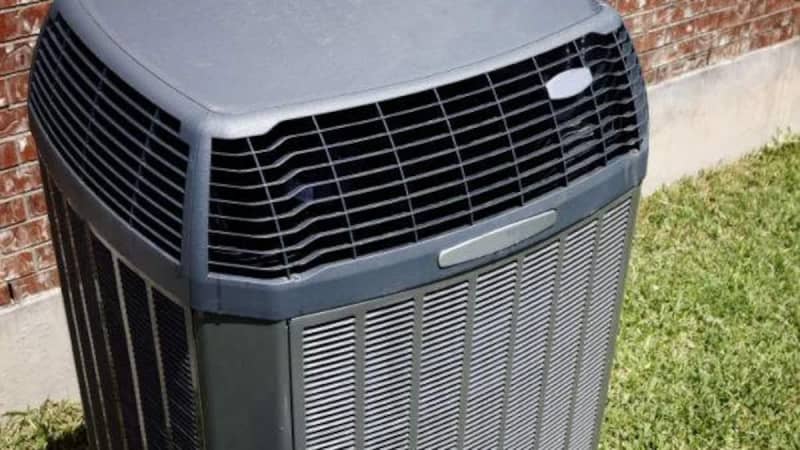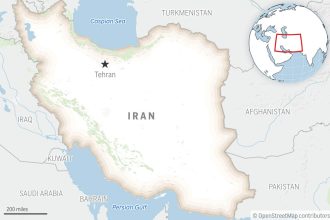Florida households know that an air‑conditioner is not a luxury; it is life support. In the state’s hot‑humid climate, 94% of homes have some form of AC, yet nearly 7% can’t afford to use it when temperatures spike, forcing dangerous trade‑offs like skipping food or medicine to pay the power bill . As heat indexes sail past 100 degrees Fahrenheit, those decisions turn lethal: one‑quarter of heat deaths in Arizona’s Maricopa County last summer occurred indoors in un‑cooled homes. This is a grim warning for Florida’s increasingly brutal summers.
A new study I co‑authored with colleagues at Carnegie Mellon University and Florida State University offers a hopeful look at one remedy: targeted rebates for energy‑efficient air conditioners. Examining more than 125,000 customer records from Tallahassee’s “Neighborhood REACH” program, we compared low‑income participants with higher‑income neighbors who also replaced aging units. The results are a wake‑up call for state regulators, municipal utilities and investor‑owned power companies alike.
After installing high‑efficiency units, REACH participants on the lowest incomes cut summer electricity use by roughly 300 kilowatt‑hours and trimmed about $25 from their seasonal bills, while higher‑income neighbors saved slightly more energy and about $31. Despite those gains, the rebate reduced energy burden by just 0.6 percentage points for middle‑income households and not at all for the poorest, leaving many Floridians with high energy bills in the summer.
Why so little progress? While the program is a success, it is also working against deep structural headwinds. REACH neighborhoods average only $23,900 in annual income, and most of the housing stock is old and inefficient. Poor housing conditions mean that the home is unable to retain cool air indoors, thus requiring more energy to keep the house at a safe temperature. This drives up utility costs, efficient equipment or not. Long before the rebate arrived, many tenants were already rationing air-conditioning to avoid high bills, the kind of “energy-limiting” behavior that quietly erodes health and comfort.
This matters to all of Florida. From Miami to Marianna, utilities spend millions on conservation programs that largely miss the people who would benefit most. The Tallahassee data proves efficient units do trim consumption and grid stress, but small rebates alone can’t overcome the upfront cost for insulating a home or the fear of higher monthly bills that haunts cash‑strapped households. With almost one‑third of Floridians already reporting some form of energy insecurity, every heat wave widens health and wealth gaps.
Here’s what we can do:
-
Tie appliance rebates to weatherization of homes. Efficiency tied with insulation upgrades can be more effective for reducing energy bills.
-
Pair appliance incentives with bill assistance (through utility‑funded arrearage forgiveness) so that low‑income families can operate new equipment without financial issues.
-
Pre‑qualify households for incentives. REACH succeeded because energy auditors went door‑to‑door, collecting signatures on the spot. Utilities should replicate that proactive model when possible rather than using do-it-yourself forms.
-
Fund the gap. For households living paycheck to paycheck, even a heavily discounted Energy Star unit can be out of reach. Expanding direct‑install programs, where the utility bears the remaining cost, delivers deeper savings and slashes future collection expenses.
-
Measure what matters. Beyond kilowatt‑hours, program scorecards should track avoided medical visits, days kept at safe indoor temperatures, and reductions in shut‑off notices. Those metrics capture the real public‑health value of expanding cooling capabilities.
Florida’s utilities are already grappling with record peak energy demand loads and the imminent retirement of older gas turbines. Scaling equitable AC‑efficiency programs is a rare win‑win: fewer kilowatts on the hottest afternoons and fewer ambulances in sweltering neighborhoods. But the Tallahassee case makes one point crystal clear: the benefits will bypass the families at greatest risk unless policy intentionally steers multiple resources (e.g., weatherization) their way.
With the next heat advisory on the horizon, we have no time to lose. Let’s make sure every Floridian has a fighting chance to stay cool, stay healthy, and keep their energy bills affordable.
Destenie Nock is an assistant professor at Carnegie Mellon University and CEO of Peoples Energy Analytics. Her work focuses on energy affordability and smart‑meter analytics.









